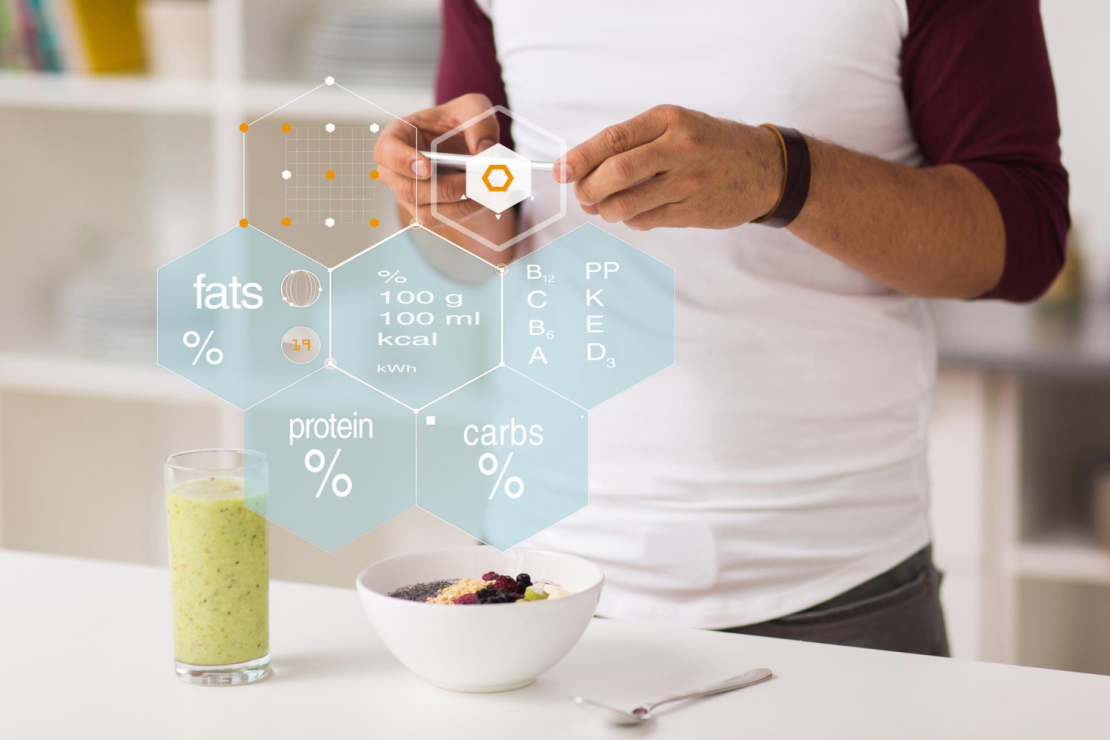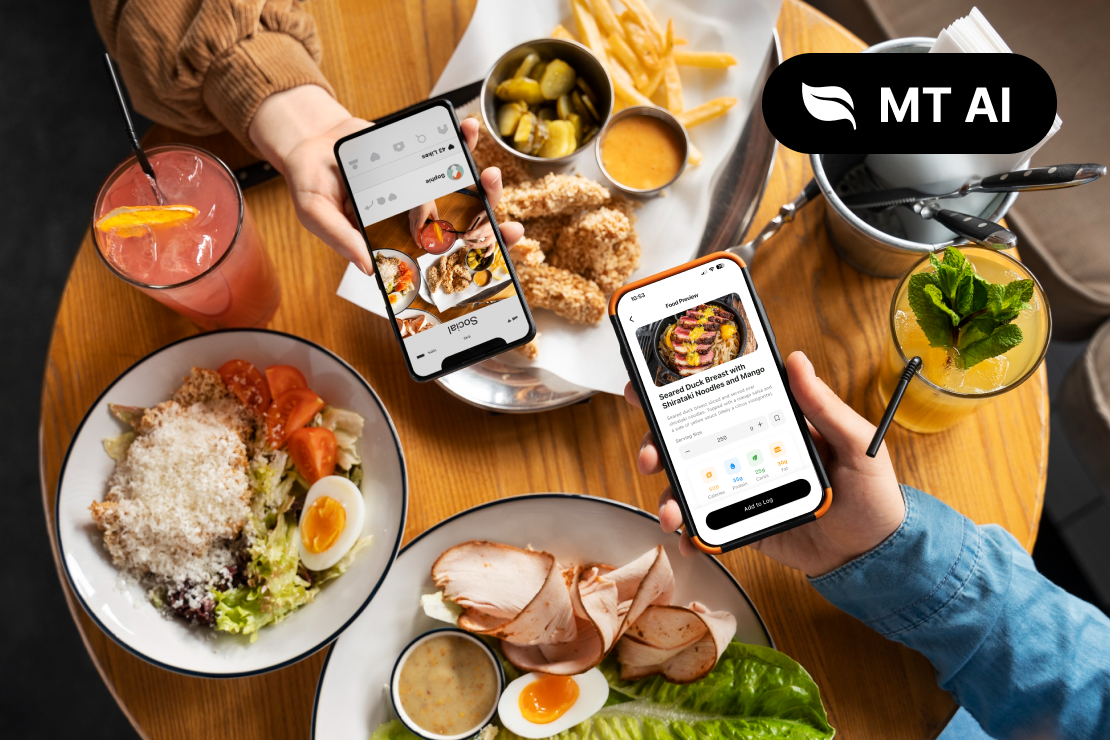Beyond Macros: Can AI Help You Track Micronutrients Effectively in 2025?
Tracking your vitamins and minerals is just as vital as counting macros. Discover the best micronutrient tracker apps, how AI is reshaping nutritional tracking, and whether ChatGPT or Cronometer can help improve your health.

Table of Content
More Than Macros — Why Micronutrients Matter
In the world of nutrition tracking, macronutrients often steal the spotlight. Proteins, carbs, and fats dominate our discussions about diet and health. However, the silent heroes of our nutritional well-being—micronutrients—deserve equal attention. As we step into 2025, artificial intelligence is revolutionizing how we monitor these essential vitamins and minerals, making it easier than ever to maintain optimal health.
The focus on counting calories and macros, while important, has led many to overlook the critical role of micronutrients in overall health. These essential compounds work behind the scenes, orchestrating countless biological processes that keep our bodies functioning optimally. From supporting immune function to maintaining bone density, micronutrients are the unsung heroes of our nutritional story.
Why Micronutrient Tracking Matters:
- Optimal Performance: Even minor deficiencies can impact energy levels, cognitive function, and athletic performance
- Disease Prevention: Adequate micronutrient intake helps prevent various chronic conditions and supports longevity
- Mental Health: Many vitamins and minerals play crucial roles in mood regulation and mental well-being
- Recovery & Repair: Micronutrients are essential for muscle recovery, wound healing, and tissue maintenance
- Hormonal Balance: Several micronutrients are necessary for proper hormone production and regulation
Despite their importance, tracking micronutrients has traditionally been challenging. The complexity of monitoring dozens of different vitamins and minerals, combined with varying absorption rates and interactions, makes manual tracking nearly impossible for most people. This is where artificial intelligence steps in, offering sophisticated solutions to simplify this crucial aspect of nutrition.
Common Misconceptions About Micronutrient Tracking:
- Myth: "A balanced diet automatically provides all necessary micronutrients"
- Reality: Modern food processing and soil depletion can affect nutrient content
- Myth: "Supplements can replace proper micronutrient tracking"
- Reality: Optimal absorption requires proper timing and combinations of nutrients
- Myth: "Tracking micronutrients is too complex for the average person"
- Reality: AI-powered tools now make it accessible to everyone
Traditional vs AI-Enhanced Nutrient Tracking
Traditional methods of tracking micronutrients have been cumbersome and often inaccurate. Food diaries and spreadsheets require manual input and extensive nutritional knowledge. AI-powered solutions are changing this landscape dramatically, offering precision and convenience that was previously impossible.
The evolution from manual tracking to AI-enhanced systems represents a quantum leap in nutritional monitoring. While traditional methods relied heavily on user knowledge and manual data entry, modern AI systems can instantly analyze meals, predict nutritional content, and provide real-time recommendations for optimal health.
Traditional Tracking Methods and Their Challenges:
- Time Investment:
- Manual logging of every meal and ingredient
- Researching nutritional content of foods
- Cross-referencing multiple sources for accuracy
- Accuracy Issues:
- Human error in portion estimation
- Outdated or incomplete nutrient databases
- Inconsistent tracking across different meals
- Knowledge Barriers:
- Required understanding of nutrition science
- Need for continuous education on food composition
- Complex calculations for nutrient interactions
AI-Enhanced Tracking Advantages:
- Automated Analysis:
- Instant food recognition from photos
- Real-time nutrient calculations
- Automatic portion size estimation
- Smart Features:
- Predictive analysis of nutritional patterns
- Personalized recommendations based on health goals
- Integration with health devices and apps
- Learning Capabilities:
- Adapts to user preferences and habits
- Improves accuracy over time
- Suggests optimal food combinations
The transition to AI-enhanced tracking systems has democratized nutritional monitoring, making it accessible to everyone regardless of their nutrition knowledge. These intelligent systems not only track intake but also provide educational insights, helping users understand the importance of various nutrients and how to optimize their intake naturally through diet.
What Are Micronutrients and Why Are They Important?
Micronutrients are the vitamins and minerals your body needs in small amounts to function properly. While they don't provide energy like macronutrients, they're crucial for:
- Supporting immune system function
- Maintaining brain health and cognitive performance
- Preventing chronic diseases
- Ensuring proper growth and development
- Regulating metabolism
| Essential Micronutrients | Key Functions | Common Sources |
|---|---|---|
| Vitamin D | Bone health, immune function | Sunlight, fatty fish, fortified foods |
| Iron | Oxygen transport, energy production | Red meat, spinach, legumes |
| Magnesium | Muscle function, energy metabolism | Nuts, seeds, whole grains |
| Zinc | Immune support, wound healing | Oysters, beef, pumpkin seeds |
Can AI Help You Track Micronutrients Effectively?
Modern AI-powered nutrition apps have transformed micronutrient tracking from a tedious chore into an intuitive process. These tools leverage machine learning algorithms to analyze food photos, provide instant nutrient breakdowns, and offer personalized recommendations.
Key AI Features in Modern Tracking:
- Image recognition for instant food logging
- Predictive analysis of nutritional patterns
- Smart meal suggestions based on deficiencies
- Integration with wearable devices
- Automated supplement recommendations
Best Micronutrient Tracker Apps in 2025
The landscape of nutrition tracking apps has evolved significantly, with several standout options offering comprehensive micronutrient tracking capabilities. Here's a detailed comparison of the top contenders:
| App Name | Micronutrient Coverage | AI Features | Price |
|---|---|---|---|
| Macro Tracking AI | Comprehensive nutrients | Advanced AI food recognition, personalized recommendations, smart meal planning | 100% Free |
| Cronometer | 90+ nutrients | Food recognition, trend analysis | Free / $8.99/month |
| MacroFactor | 30+ nutrients | Adaptive algorithms, AI coaching | $11.99/month |
| Lose It! | Basic nutrients | Photo logging, meal suggestions | Free / $39.99/year |
Detailed App Analysis:
Macro Tracking AI
Leading the pack in 2025, Macro Tracking AI stands out for its completely free access to advanced features. The app combines cutting-edge AI technology with comprehensive nutrient tracking:
- Key Features:
- State-of-the-art AI food recognition
- Comprehensive micronutrient tracking
- Personalized nutrition recommendations
- Smart meal planning suggestions
- Real-time deficiency alerts
- Advantages:
- 100% free with no hidden costs
- User-friendly interface
- Regular updates and improvements
- Community-driven features
Other Notable Apps:
- Cronometer: Known for its scientific accuracy and extensive nutrient database, but premium features come at a cost.
- MacroFactor: Offers sophisticated adaptive algorithms but focuses more on macro tracking with limited micronutrient coverage.
- Lose It!: User-friendly with basic nutrient tracking, suitable for beginners but limited in micronutrient detail.
While each app has its strengths, Macro Tracking AI's combination of advanced features, comprehensive nutrient tracking, and completely free access makes it a compelling choice for those serious about monitoring their micronutrient intake.
How to Improve Micronutrient Intake With AI Tools
AI-powered nutrition apps don't just track—they actively help you improve your micronutrient intake through various smart features:
- Personalized food recommendations based on deficiencies
- Smart meal planning that optimizes nutrient intake
- Supplement tracking and reminders
- Integration with blood test results
- Seasonal food suggestions for optimal nutrition
Can AI Replace a Nutritionist?
While AI tools are powerful, they're best viewed as supplements to, not replacements for, professional nutrition advice. Here's when each option shines:
AI Tools Excel At:
- Daily tracking and monitoring
- Basic nutritional guidance
- Pattern recognition
- Convenience and accessibility
When to Consult a Nutritionist:
- Complex medical conditions
- Specific dietary restrictions
- Emotional eating patterns
- Personalized meal planning
Tips for Better Micronutrient Tracking
To make the most of AI-powered micronutrient tracking:
- Focus on whole, unprocessed foods
- Consider nutrient timing and absorption
- Track consistently, but don't obsess over perfection
- Use multiple data sources for verification
- Regular blood work to validate tracking accuracy
Conclusion: Smarter Nutrition in the AI Era
AI has revolutionized micronutrient tracking, making it more accessible and accurate than ever before. While these tools shouldn't replace professional medical advice, they provide valuable insights and support for maintaining optimal nutrition. As technology continues to evolve, we can expect even more sophisticated solutions for monitoring and improving our micronutrient intake.
Frequently Asked Questions
What is the best free app for tracking micronutrients?
Cronometer's free version offers the most comprehensive micronutrient tracking capabilities, with data for over 90 nutrients and a scientifically verified database.
Can ChatGPT help with tracking nutrition?
While ChatGPT can provide nutritional information and guidance, it's not designed for real-time tracking. It's best used as a supplementary tool alongside dedicated tracking apps.
Is Cronometer accurate for micronutrient tracking?
Yes, Cronometer is known for its accuracy, using data from verified sources like NCCDB and USDA. However, results depend on accurate food logging and portion size estimation.
How can I improve my micronutrient status?
Focus on eating a varied diet rich in whole foods, use AI tracking tools to identify deficiencies, and consider supplements when recommended by healthcare professionals.
Start Your Health Journey Today
Download Macro Tracking AI and take control of your nutrition with the power of artificial intelligence.
Download on App Store

